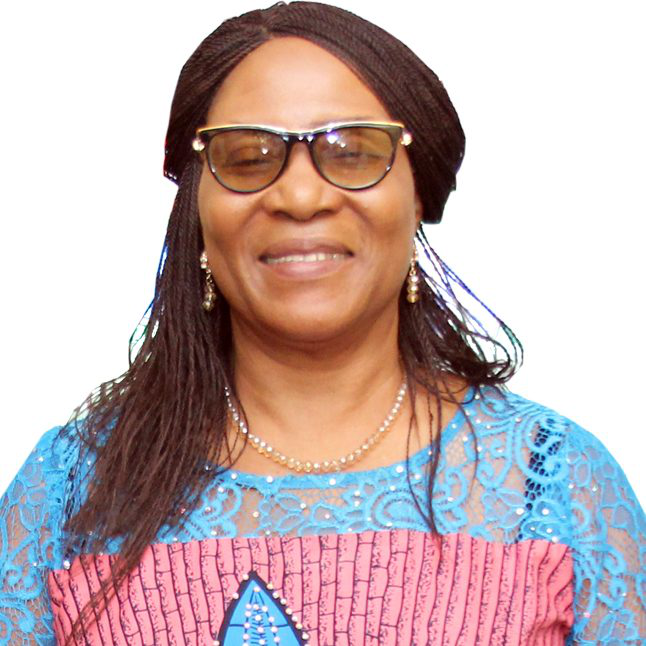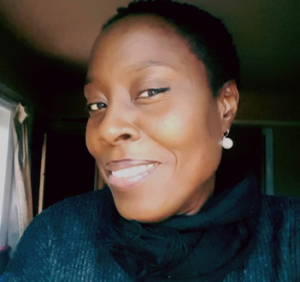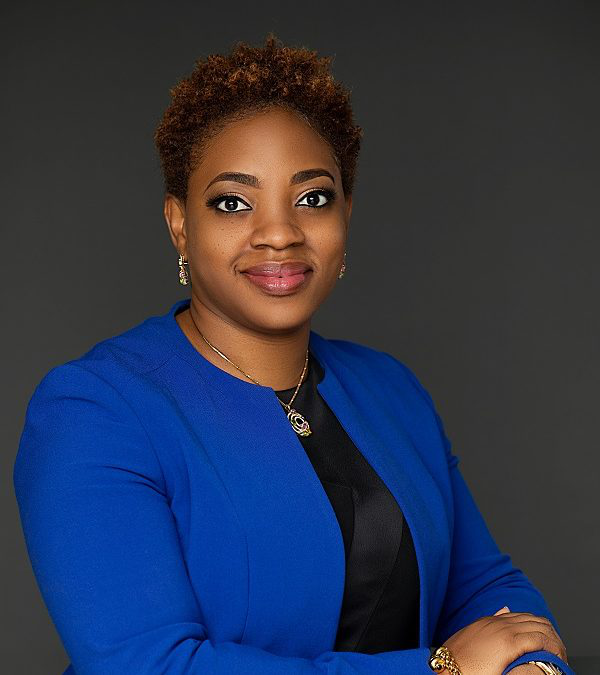COPING STRATEGIES FOR WOMEN’S ECONOMIC RECOVERY IN NIGERIA BEYOND COVID – 19 PANDEMIC
Writes LADY NKIRU CELINE OKORO
The biggest lessons learned so far with the emergence of the COVI-19 Pandemic for women-owned small businesses in Nigeria is to always invest in digital skills, digital technology, and be intentional in being IT savvy.
Also, Women Entrepreneurs should strive to be more creative, proactive, and innovative while staying safe and healthy.
They should be innovative and shift their businesses online to effectively leverage and exploit Social Media to mitigate the Communications gap that could hinder online Businesses and E-commerce.
There should be digital inclusion for informal women workers, redistribution of unpaid care, and domestic work in households to enable women time to engage in paid work.
Deliberate efforts should be made by all government agencies involved with micro, small and medium enterprises (MSMEs) to engage the informal women workers in post-COVID -19 recovery decision making strategy meetings and sessions in an organized manner.
Meanwhile, everyone, including the financial sector, civil society organizations (CSOs), governments at all levels, and development partners need to play their part to rebuild the lives of informal women workers better.
Women in the informal sector on their part should start organizing through proper market/production segmentation, clustering, networking, mentoring, and information sharing as the new way to go.
For Dr. Mrs. Anita Nana Okuribido, National Co-ordinator, Association Of Nigerian Women Business Network (ANWBN, Nigerian women post-COVID – 19 economic recovery efforts will need improved roads, infrastructure, 24/7 electricity supply, and institutional mechanisms to address gender-based violence.

Chief (Mrs.) Anita Okuribido
National Coordinator
Post-COVID 19 economic recovery will require training and retraining of Nigeria’s leadership elite to deliberately develop new crop of leaders that will be empathetic and have the fear of God Almighty and interests of the majority of Nigerians in carrying out their programs and activities.
These and more were the consensus of the resources persons and experts in what is now considered the new normal way of holding meetings, conferences, training and capacity building workshops on topical issues aimed at influencing policy, engaging experts and strategic stakeholders including international development partners.
The Women Advocates Research & Documentation Center (WARDC) in partnership with Women’s Rights Advancement & Protection Agency (WRAPA), Association Of Nigerian Women Business Network (ANWBN) and Women in Business & Management(WIMBIZ) Held its 14th weekly ZOOM CSOs briefing titled, “Strategies for Women’s Economic Recovery Beyond COVID – 19 penultimate Monday, July 27, 2020”.
With funding support from MacArthur Foundation and over 100 participants /experts that logged on from most countries in the world, the zoom meeting had as resources persons Toronto based human rights research consultant, Dr. Mrs. Toun Ilumoka; National Co-ordinator – Association of Nigerian Women Business Network (ANWBN)- Dr. Mrs. Anita Nana Okuribido; Chairperson, Executive Council, WIMBIZ and Head Coverage, Rand Merchant Bank Nigeria – Ms. NGOVER IHYEMBE-NWANKWO, and Barr. Mrs. Stella Odiase’s, a public policy analyst currently in the United Kingdom.
In her presentation, Dr. Toun Ilomoka x-rayed strategies for women’s economic recovery post-COVID 19 pandemics to include a reformed structural Adjustment program that will have more women playing roles in key sectors of the economy.
She challenged the Nigerian government at all levels to provide opportunities for more women in leadership positions across the board including political participation of women through affirmative action as well as take proactive responses to gender-based violence.
For Chief (Mrs.) Anita Nana Okuribido, the Covid-19 pandemic is unprecedented in our lifetimes, impacting all economies; causing threats and disruption to most Women-Owned Businesses.
From marketing and branding to occupational therapy, mental health, feminine health care, and in between, businesses were forced to continuously adapt to the changing tides. This had implications for health; education, economic and agricultural sectors including food security that impacted men, women, boys, and girls.
COVID -19 pandemic has increased care burdens for women and girls as well as gender-based violence. It also caused trade disruptions as borders were closed and curfews imposed restricting movements to only essential services of food, health, and security supplies.
Stricter sanitary controls were imposed in public spaces and the use of face masks made compulsory. Travel restrictions had consequences for commodity prices and everyday livelihood.

Barr. Stella Odiase
Her paper was titled, “Women-Owned Business in Nigeria and the COVID -19 Pandemic” Barr. Stella Odiase opined that the pre-COVID -19 Nigeria had 46% of businesses owned by women. 76% of these are necessity based. 43.32% are micro-businesses employing less than 10 persons with an asset base of less than 5million Naira.
Stella observed that Over 50% of women-owned businesses are involved in the manufacturing of Households, fashion, and home goods. The second category was involved in wholesale and retail trade while the third category was in education, including schools, creches, and training centers. Others are in various agri based businesses.
Research studies revealed that less than 23% of women-owned businesses in Nigeria have bank accounts compared to 77% of men-owned and managed businesses.
Sadly, Nigerian women constitute 56% of the world s 1.7billon adults that are unbanked.61% of women-owned business did not know about the various government COVID – 19 support policies and programs including the Central Bank of Nigeria’s 50 Billion Naira COVID-19 loan to households disbursed through Nirsal Microfinance bank to cushion the negative effect of the pandemic.
Truth be told, COVID -19 seems not to be going away, and life must go on. Women in Nigeria are known to be active at the bottom of the pyramid ladder in socio-political and economic spheres of life.
Most researches and studies carried out on the impact of COVID 19 on livelihood show that women and girls have been negatively impacted by COVID 19 pandemic in Nigeria.
Most women-owned businesses lost their major clientele during the locked down as many could not access their customers. This is because a lot of women-owned and managed businesses are service oriented and largely informal.
Recounting her experience, Ms. Evelyn Urhobo said, “… There is no doubt the Pandemic has been very devastating in my hospitality business which is renting self-catering Guest Apartments for short term occupation. It has been an almost Zero occupancy in the last 5 months”.
“We had to re-strategize for long time occupancy by dropping renting cost to get patronage, and growing other sub-sector of the business to generate income on its own including the laundry service that had to be built upon to go commercial and other side business that can be supported by the Shebet Guest Apartments”.
“That’s where some financial support to diversify as a survival strategy comes in. Introduction of finger foods to be marketed through e-commerce are all options that are being considered to survive the pandemic. There is no doubt that financial supports are required urgently”.
Meanwhile, Women-owned businesses make up over 80% of agriculture producers, processors, traders, agricultural entrepreneurs, and natural resource managers.
Realizing that Women’s Ownership constitutes about 80% of MSMEs in Nigeria and are affected by this pandemic, It is sad to note that most women were sidelined in most governments COVID 19 interventions.
Enthused a participant, “People are dying of hunger gradually on a daily bases as no solid provisions were made through our government like other country’s. This is the time for our government to look into the area of women in the informal sector and not only when they need our vote”.
Besides, Nigerians are concerned and express profound reservations in the ongoing social investment program under the Federal Ministry of Humanitarian Services, where the Nigerian government has vehemently refused to make public the three million-plus beneficiaries of its social investment programming for the poorest of the poor in Nigeria.
Nigerians are concerned about a Ministry of Humanitarian Services that claimed they carried out a school feeding program while students and pupils where locked down in their homes from March 24 2020 to date.
All the facilitators decried the lack of proper accountability and transparency in Nigeria’s governance system.
Said Hajiah Sadautu Mahdi of WRAPA, “…despite the lack or limited access to funds, the lack of transparency & accountability in governments spending is not giving us the right results…”

NGOVER IHYEMBE-NWANKWO: Chairperson, Executive Council, WIMBIZ Head Coverage, Rand Merchant Bank Nigeria
Said NGOVER IHYEMBE-NWANKWO of WIMBIZ, “E-commerce is a good one, I agree. I believe the digital skills in combo with women’s innate qualities will facilitate strong digital marketing skills & online business collaborations to steer e-commerce”.
The panelist who mentioned that holding leaders who have funds accountable on how to disseminate and manage the funds are insightful. How can women effectively and strategically do this?
How do women understand when grants or funds are available for use on their behalf and when the planning stage has begun to ask questions and hold the leaders accountable?
Also,hope programs and strategies are implemented to create women leaders who have access to these funds and can help channel to women’s affairs.
For Salome Emah, “Here in Akwa Ibom, the government is disturbing the informal workers, destroying the boots they put up for sales, even when it does not affect the traffic in any way is so dishearteningly”.
Social protection, universal public health, accessible and affordable Water, Sanitation and Hygiene (WASH), free internet, low-interest loans, access to information of available financial products, inclusive financial stimulus, assessment of the impact of COVID-19 on informal women workers to inform policies should form part of what Nigerian women expect from its governance systems and structures post COVID – 19 pandemic.
Others should include childcare support for informal workers to continue to stay safe after COVID-19.
The resource persons recommended that Nigerian governments at all levels should as a matter of urgency:
(1) Reconstitute the COVID -19 National Response Management Team to accommodate high-level Female Decision Makers/Professionals and prioritize Gender Considerations.
(2) Commence Gender Analysis of reported gender-based violence cases.
(3) Mandate the Federal Ministry of Women Affairs, and organizations like WRAPA, WINBIZ, ANWBN to provide regular briefings on the Gender-Based Dimension of the pandemic and expectations from Women during the countrywide Business slowdown.
#
END

